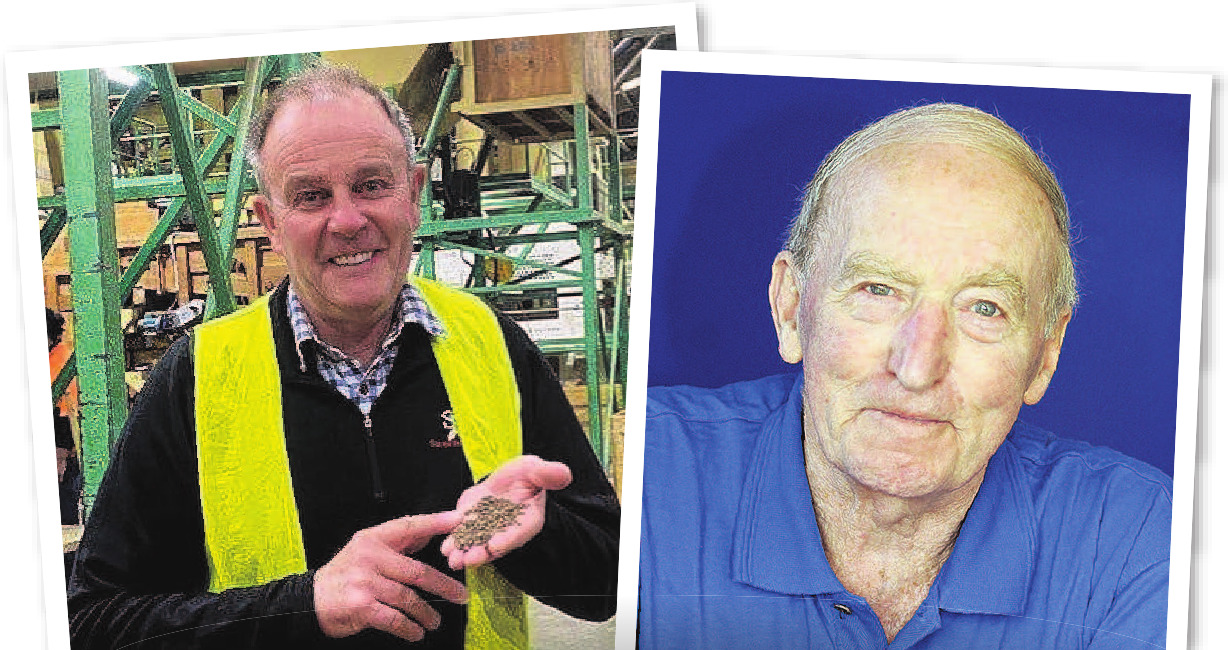
His son, Grant, accepted the award at the Asian Pacific Seed Association’s (Apsa) conference in Christchurch.
Born during the Great Depression, Mr Smith left school at 15 to work for a jute importer in Christchurch before going to Pyne Gould Guinness (PGG) as a clerk writing invoices and credit notes in the seed department.
Mr Smith, who died in 2022, spent two years at the big wool store that also stored and cleaned grain and peas in the off-season.
He then became a company representative in the Rakaia area in 1958.
Later, he helped set up an export department at the PGG Christchurch head office before being approached by RG Woodham & Company to manage and grow their export department, including small seed in Ashburton.
Woodhams was taken over by Hodder & Tolley Ltd and then Yates and Elders IXL — and he was increasing exports for seed business into the Asian region.
On a work trip to Thailand in the 1980s, he visited a fresh vegetable market and brought vegetable brassica seeds back to New Zealand to trial.
That was the introduction of Asian vegetable production to New Zealand.
He saw an opportunity to form his own specialist company, so set up Smith Seeds with sons Grant and Michael in 1990.
The family realised that with travel to Asia they could multiply customers’ own vegetable types and the business went from strength to strength.
Today, Grant Smith follows in his father’s footsteps and continues to grow the business at a new office and warehouse complex in Ashburton, and runs subsidiary companies.
During Ross Smith’s tenure as president of the New Zealand Grain & Seed Trade Association, an organising committee was formed to bid for the 1987 congress of the international seed trade federation (FIS).
The group was successful and the event in Christchurch was the first time it was held outside the northern hemisphere.
Seed people travelled from around the globe to visit New Zealand.
Specialist vegetable seed pioneer John McKay, from South Pacific Seeds NZ Ltd (SPS), was also recognised with an Apsa award.
Harvesting a crop of evening primrose seed at the family farm in 1991, a chance meeting introduced him to the family founding the Australian seed company.
Driving past the field, Mark Hancock stopped to ask him what he was doing and that led to hybrid vegetable seed trials on the farm.
Mr Hancock and his father, Phil, asked Mr McKay to join SPS and help them in New Zealand.
That set in motion a career in which he rose to become managing director of the New Zealand branch.
Mr McKay grew up seeing his father grow cocksfoot seed, a difficult crop, notorious for uneven ripening, and using old machines often requiring repair and innovation to keep them running.
This made an impression on him, and provided solid training for saving seed crops and the mechanisation of agriculture.
He started farming in Methven with his parents’ help and found it a good place for grain and seed production.
The challenges of summer rainfall and strong winds could be countered by good planning, working hard and using new technologies such as fungicides, seed pod sealing sprays and advanced farm machinery.
For 30 years, Mr McKay has helped set the pathway for producing and exporting high quality hybrid vegetable seed, and grow the SPS.
From small beginnings, the company has become the largest production company for vegetable seeds in New Zealand.
Today, it employs 60 full-time staff and has a summer team of more than 100 to support the production and export of many hybrid and specialist vegetable crops.
Mr McKay said SPS and its farmers played an important role in global seed production as New Zealand was a counter-season producer in the northern hemisphere winter.
"Indeed, our SPS team have proved this for high-quality hybrid vegetable seeds, which we supply to elite world markets. Currently, we produce nearly 500 hybrid vegetable seed crops from 230 contracted farmers."
Systems were set up to pass on new knowledge of hybrid seed production to farmers, avoid crop failure and ensure quality control.
Seed production techniques were developed to suit local conditions, including selecting the best fields for crops, raising soil fertility, establishing good crops, using modern weed and disease control, as well as developing harvest procedures and a facility for seed drying, cleaning and packing.
Part of his role was to search for new customers around the world, building on the Australian team’s strong relationship with customers in Japan and Europe and extend this to Korea.
Being a seed producer often helped him get a foot in the door.
Mr McKay became an industry advisory member to the board of the Seed Industry Research Centre at Lincoln University — an organisation now at the forefront of seed industry research.












